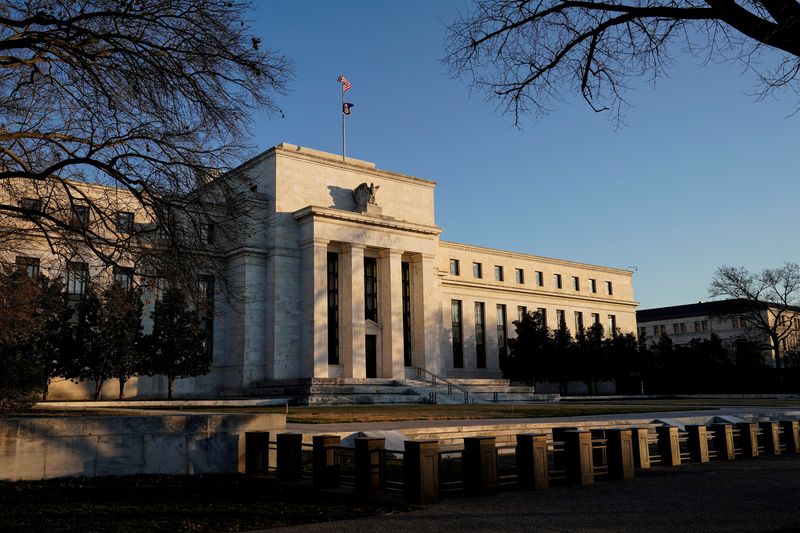(Reuters) - The Federal Reserve should get interest rates up to a level that no longer stimulates the economy as quickly as possible including 50-basis-point hikes at the central bank's next two meetings, San Francisco Federal Reserve Bank President Mary Daly said on Wednesday.
"I see a couple of 50-basis-point hikes immediately in the next couple of meetings to get there. And then we need to look around and see what else is going on," Daly said in a CNBC interview.
"Let’s get there as quickly as we can," Daly added on getting to a neutral rate - a level which neither revs up nor restricts economic growth - which she estimates at 2.5%.
The central bank is under pressure to begin to decisively curb overly high inflation, which is running at more than three times its 2% goal and has included a surge in the cost of everyday items such as food and gasoline.
Fifty-basis-point hikes at each of the Fed's next two meetings in June and July are all but confirmed, and debate has shifted to the rate hikes required for the rest of the year.
Most policymakers have said they want to wait and see how much inflation comes down over the summer before deciding whether they need to increase or reduce the size of a rate hike in September.
Fed Chair Jerome Powell has said only that the central bank will continue to raise rates until inflation come down in a "clear and convincing" way.
Daly cautioned that the path ahead on inflation once the Fed gets rates up to a neutral level also depends on other factors besides U.S. consumers' willingness to spend, such as the war in Ukraine and lockdowns in China to restrict the spread of COVID-19, which have exacerbated existing supply chain issues.
"I'm looking for both supply to recover somewhat and demand to come back down a little bit. If neither of those things cooperate, then we need to go into restrictive territory,” Daly said, although she noted that policymakers had to be equally open to stopping rate raises if inflation comes down on its own.

Daly said she does not see a recession as the Fed's tightening actions take hold due to the strength of the economy.
"I see restaurants full, airports full. ... People recognize it's hard to afford things and yet they're still spending, so we have to wait for all this to play out. The summer's going to tell us a lot."